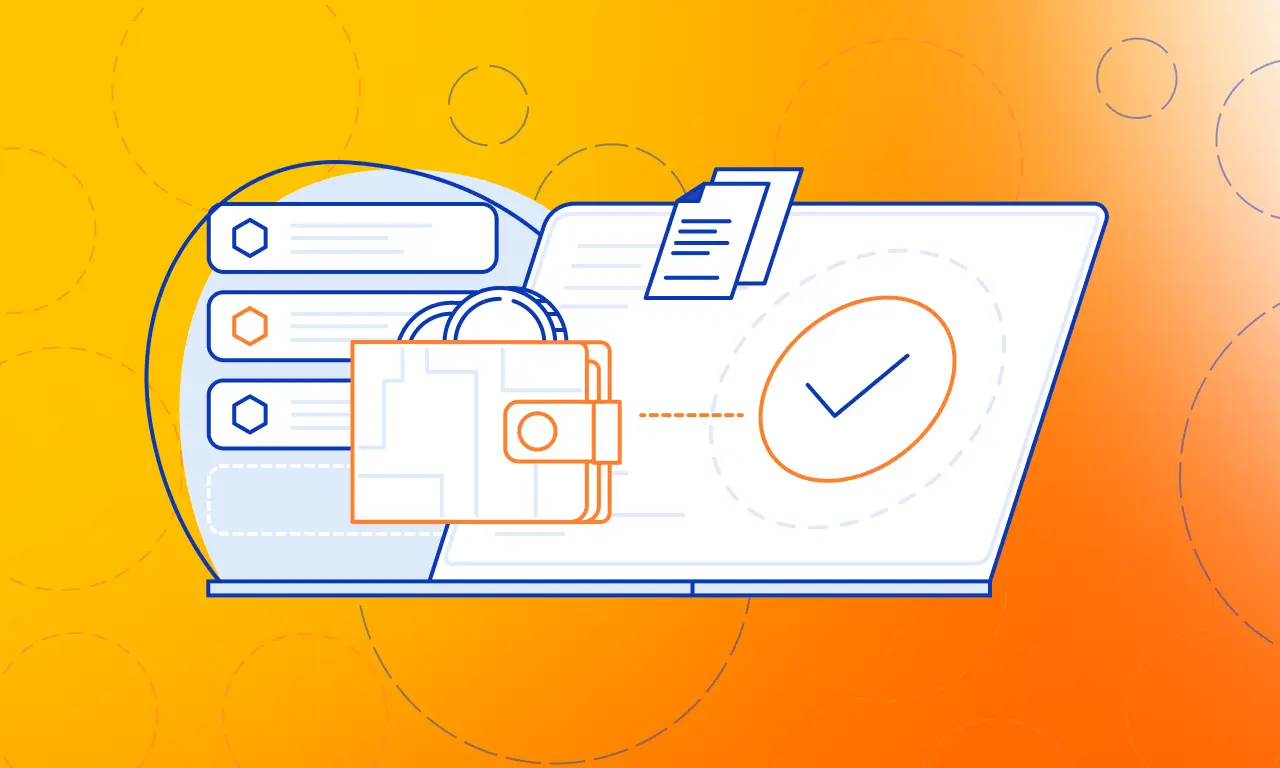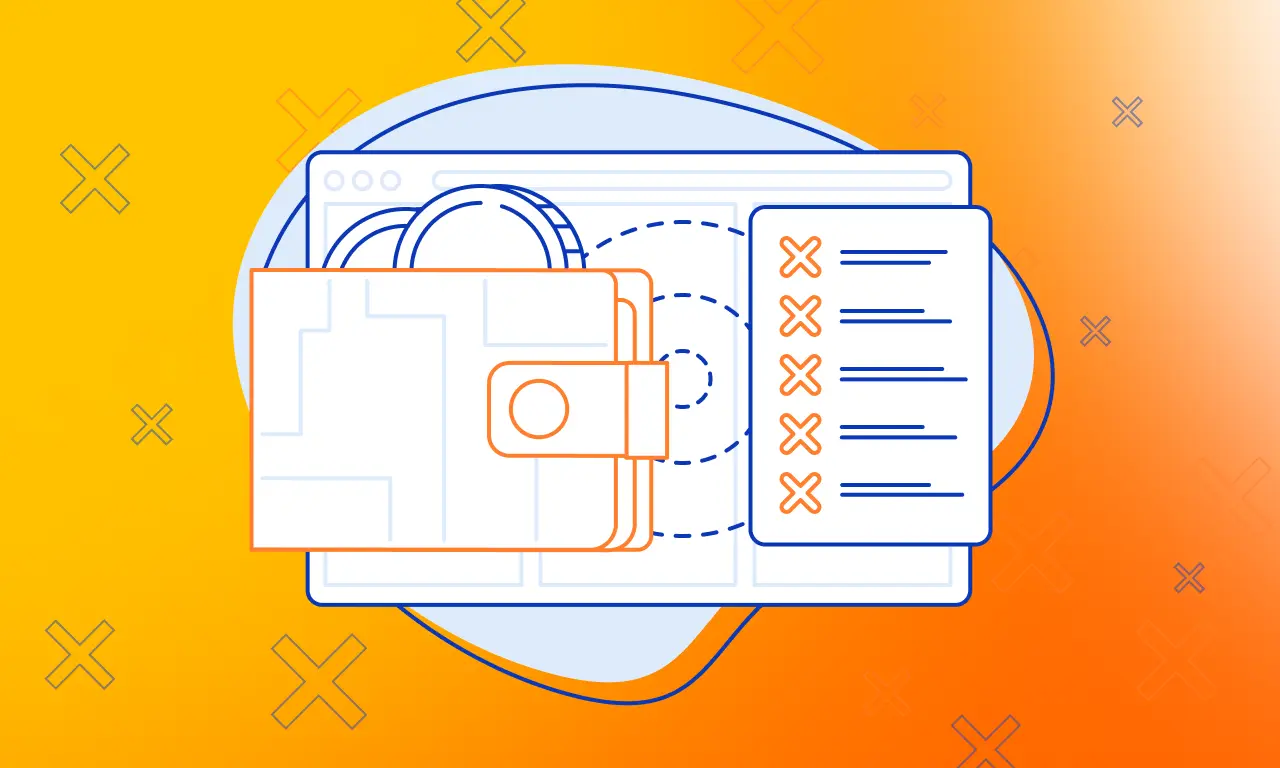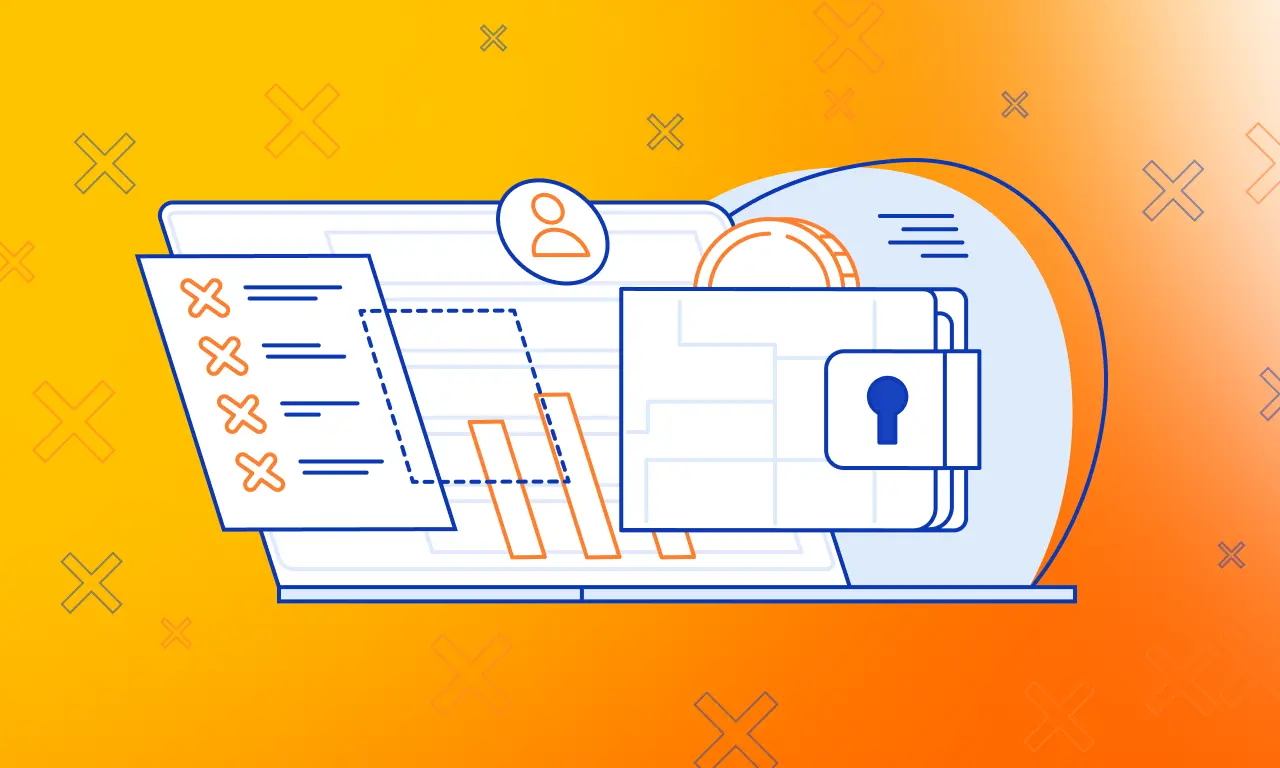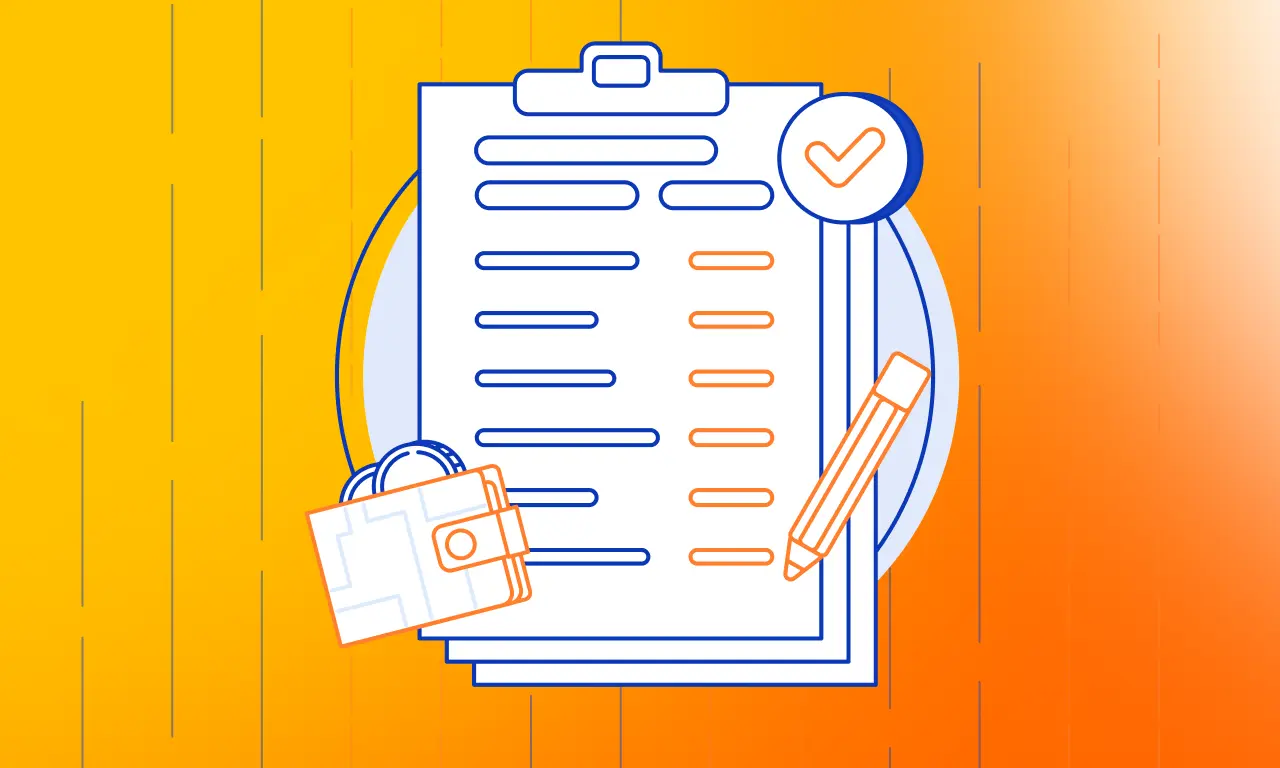Non-Custodial Wallets vs Custodial Wallets: Know the Difference
26/09/2023

A cryptocurrency wallet is a tool for interacting with cryptocurrencies on the blockchain. It allows you to create and manage addresses for storing and conducting transactions with digital assets. Essentially, it is an application with a user interface and various features for address management and the cryptocurrencies stored within it.
When you create an address, a cryptocurrency wallet generates keys - cryptographic identifiers, essentially acting as a "personal ID card." These keys are what grant you access to the funds stored in your account (address on the blockchain).
Typically, each address comes with a pair of keys: a public key and a private key. These keys are interlinked and associated with a specific address.
The address on the blockchain is a "compressed" version of the public key, which is visible to any other user. On the other hand, the private key is used for generating digital signatures and verifying transactions. Only the owner of the address knows the private key because it provides access to their funds.
It's important to note that keys are not required to access your cryptocurrency holdings; instead, this is managed using the login and password you set during registration.

What is a custodial cryptocurrency wallet and where to accept it?
A custodial wallet is a specialized application designed for the storage and management of cryptocurrencies, with a distinctive feature being that its operator, known as the custodian, oversees users' addresses or holds access to their private keys. Additionally, customers of the custodial service are required to undergo identity verification procedures known as KYC (Know Your Customer).
Custodial wallets are often integrated within centralized cryptocurrency exchanges. While each user maintains a separate account and balance, all cryptocurrency funds are centralized and stored on a limited number of addresses managed by the exchange. This setup streamlines the usage of trading features and eliminates the need for users to handle transaction fees within the platform.
Typically, individual cryptocurrency users do not encounter custodial wallets unless they are using specialized applications. However, institutional investors, such as companies handling significant cryptocurrency holdings, frequently turn to custodial solutions. They entrust their digital assets to professional companies equipped with high-level security measures and additional services, such as insurance. Prominent custodial services in the cryptocurrency industry include Xapo, BitGo, Gemini, and Coinbase Custody.

Minuses of Custodial Wallet
One significant disadvantage associated with custodial cryptocurrency wallets is the potential for the custodian to gain access to clients' cryptocurrency assets.
The exchange administration possesses both the private and public keys for the addresses where clients' cryptocurrencies are stored. The centralized storage of a substantial amount of assets makes trading platforms a frequent target for hacking attempts. As a result of these breaches, individual users may find themselves deprived of their cryptocurrencies.
Furthermore, cryptocurrency exchanges are legal entities that are required to comply with legislation and law enforcement demands. Upon request, they may disclose customer information and freeze funds in the wallet. This can occur in situations involving sanctions or asset seizures ordered by a court of law.
Another unfavorable aspect can be the inability to access one's own assets during maintenance periods, as the custodian has the capability to temporarily restrict user access if deemed necessary.

What is a non-custodial cryptocurrency wallet
A non-custodial wallet allows users to own and control their private keys. This option is best suited for those who want to independently manage their assets. Since there are no intermediaries involved, owners of non-custodial wallets can trade cryptocurrencies directly. It's a suitable choice for experienced traders and investors who know how to use and protect their private keys and seed phrases.
A non-custodial wallet is needed to interact with a decentralized exchange (DEX) or decentralized application (DApp). For example, it's required to use popular decentralized exchanges like Uniswap, SushiSwap, PancakeSwap, and QuickSwap.
Non-custodial wallets are provided by services such as Trust Wallet and MetaMask. Keep in mind that when using a non-custodial wallet, you bear full responsibility for the safekeeping of your seed phrase and private keys.

The disadvantages of a non-custodial wallet
Non-custodial wallets offer complete control over keys and assets without third-party intermediaries. In other words, the assets belong entirely to the wallet owner, who can act as their own bank. Additionally, transactions with a non-custodial wallet are faster since users don't have to wait for withdrawal confirmations. Finally, if you don't have a custodian, you don't need to spend extra funds on asset storage.
At the same time, one of the drawbacks of using non-custodial wallets is the complexity of usage. Typically, they are less user-friendly and intuitive for beginners. This issue should be addressed as non-custodial service offerings evolve.
It's worth noting that owners of non-custodial wallets bear full responsibility for their keys and must follow security measures. Unlike custodial wallets where security is provided by the custodian, non-custodial wallet owners are responsible for their security independently.

How are non-custodial wallets changing the crypto industry?
Non-custodial wallets have a significant impact on the cryptocurrency industry. They offer users full control over their assets and provide a higher level of security since users manage their own keys. These wallets also enable faster transactions without the need for confirmation delays. Despite their advantages, they may require a higher level of technical expertise, especially for newcomers to the cryptocurrency world.
This category of wallets provides users with quick access to decentralized finance (DeFi) protocols, Web 3.0, and non-fungible token (NFT) markets. For instance, Uniswap, a popular trading protocol, does not require users to go through KYC and AML registration procedures. Instead, users can connect to it using their browser wallet with Ethereum network support.

Summing Up
So, which wallet is better to choose: custodial or non-custodial? In reality, most users prefer to use both types of wallets depending on their specific needs. If you value full control over your assets and actively use blockchain technology to interact with DeFi applications, then a non-custodial wallet is an excellent choice.
However, if you're looking for a service provider that can ensure the secure storage of your assets, especially during active trading or investments, it may be worth considering a custodial wallet. In this case, you can entrust your funds to professionals who will ensure their safety.
It's essential to remember that regardless of the type of wallet you choose, you should always exercise caution and adhere to reliable methods of protecting your assets. Security always comes first when it comes to cryptocurrencies.
Do you like this article? Share it with your friends.



